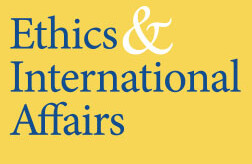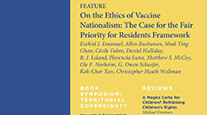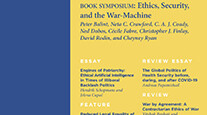Whether one calls it a "League of Democracies" (John McCain) or a "Concert of Democracies" (John Ikenberry and Anne-Marie Slaughter), the idea that democratic states should establish their own exclusive venues for international cooperation provides an opportunity for fresh reflection on the global role of the United States and other liberal democracies, and on the future of multilateralism and the United Nations system.
On one level, the idea that democracies can and should pursue common interests responds to a practical challenge: the difficulty of achieving consensus in large intergovernmental settings. Related concepts, such as "coalitions of the willing," "core Europe," and "competitive multilateralism," propose that the capacity to act, especially in morally urgent situations, may be unduly constrained by current international arrangements. Institutionalized cooperation among democratic states, it is argued, offers the best hope of coping with pressing dilemmas of collective action, such as humanitarian intervention.
While such a proposed new organization might offer new answers, there is no doubt that it also raises important new questions. Would the actions of such an organization be legitimate? If so, by what standards of legitimacy? What would be the implications for multilateralism in general, and for the United Nations in particular?
The idea that a compact among democracies is possible is based on the assumption that liberal democracies share similar values that determine common interests. To what extent is this true of the current global situation? What role should the ethical standard of "democracy" play globally? Can a liberaldemocratic "club" contribute to the spread of democracy by its power of attraction? Or does it risk dividing the world across "civilizational" lines? In what policy areas is such democratic cooperation crucial, and in what areas must democracies not "go it alone"?
The Carnegie Council has long provided a forum for the discussion of provocative ideas, and it is in this tradition that we have invited four responses to these important questions. Each of the following essays was written independently of the others, and together they represent a variety of views. We hope that this Roundtable will provoke further discussion of the topic, and we invite responses from our readers.
—The Editors



